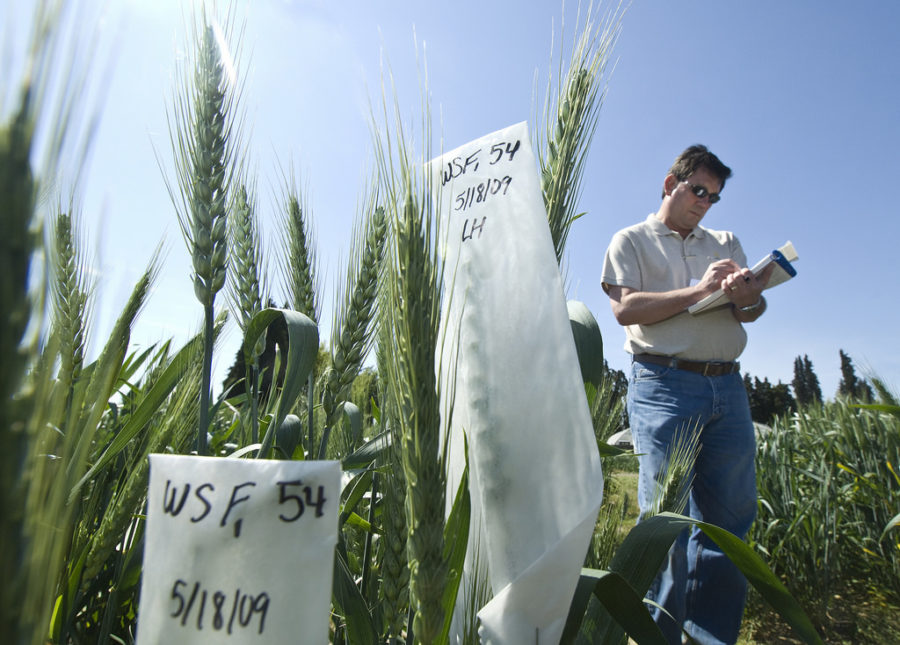In August 2018, a San Francisco jury found Monsanto Company liable for Dewayne Johnson’s non-Hodgkin’s lymphoma.
Johnson, an African-American who served as school groundskeeper, claimed his disease was caused by four years of routinely applying Monsanto’s Roundup weed killer on school property. The jury awarded $39 million in compensatory damages for medical costs and future lost income, and $250 million in “punitive,” damages, finding that Monsanto acted with “malice.”
In October, San Francisco Superior Court Judge Suzanne Bolanos affirmed the jury verdict, but she also held that the California Constitution limits punitive damages to no more than compensatory damages. She reduced overall damages awarded to $78 million, subject to Johnson’s agreement. Johnson may have fewer than three years to live and he accepted the ruling on November 1.
Monsanto, a unit of the transnational chemical and drug giant Bayer AG, consistently denies that Roundup or its “active ingredient,” glyphosate, causes cancer. But Monsanto has also tried to undermine a 2015 finding classifying glyphosate as “probably carcinogenic in humans,” as determined by the International Agency for Research on Cancer (IARC), part of the World Health Organization. Monsanto never tested the carcinogenicity of Roundup “formulations” containing glyphosate along with other ingredients, which the company may consider proprietary.
As Johnson’s experience demonstrates, glyphosate/Roundup is used to kill weeds in residential and public recreational settings. Glyphosate is also applied in agriculture. In the Pacific Northwest, use of this weed killer includes wheat, sugar beets, pastures, and the floors of orchard crops.
Negative publicity around the chemical has already had an impact on a glyphosate application in the region. When Pope Resources, a private timber company, proposed spraying glyphosate over its land in northern Kitsap County, Washington, the Kitsap Environmental Coalition filed an appeal with the Washington State Pollution Hearings Control Board. In response, Pope announced it would delay spraying until February 2019, when the appeal hearing is scheduled.
But concerns in Cascadia for the weed killer’s effects date back further. When Sightline last covered glyphosate and Roundup, we reported that Monsanto created genetically modified crops resistant to this particular herbicide. In June 2013, Monsanto’s glyphosate-resistant wheat was found in the field of an Oregon grower who had planted traditional, unmodified wheat. US wheat growers, including organic growers, worried that this contamination would damage exports to Japan and other countries, including the European Union, where genetically modified foods are poorly received. As a result, the Center for Food Safety and several Northwest wheat growers filed a class-action lawsuit against Monsanto.
In November 2014, Monsanto settled the suit with specific plaintiffs, agreeing to pay wheat grower associations in Idaho, Oregon, and Washington State. The company also paid over $2 million into a settlement fund for wheat growers in the same states.
Growers planting the genetically modified crops spray with enough Roundup to kill weeds, but not so much to prevent the crop from growing. But as we also reported, constantly spraying Roundup or any other pesticide can lead to pest resistance and Roundup-resistant “superweeds.”
In the US, regulation of genetically modified crops is split among three federal bodies. The Department of Agriculture (USDA) must approve the release of a genetically modified organism into the US. The Food and Drug Administration (FDA) reviews plants that could enter the food supply, and the EPA regulates genetically modified crops with pesticide activity. The EPA also regulates pesticides in general and must determine that each pesticide meets a safety standard for human health.
The EPA first approved glyphosate for application on a broad spectrum of crops in 1974. But the chemical’s usage increased dramatically after 1996 when genetically modified, glyphosate-resistant crops were approved and first planted commercially in the US. In addition, as resistant weeds developed, the EPA accommodated the company by consistently increasing the allowable levels of the chemical on crops. As a result, glyphosate is now the most heavily used herbicide in US agriculture.
Moreover, the Environmental Protection Agency (EPA), which is supposed to regulate pesticides in the US, was sadly lacking in meeting its public health responsibilities. At best, the agency was asleep at the switch on glyphosate. At worst, at least one EPA senior scientist actively colluded with the company to downplay Roundup’s health risks. As a consequence, EPA’s draft human health risk assessment (December 2017) evaluated non-cancer health concerns and concluded that risks were acceptable.
For its part, Bayer AG, which absorbed Monsanto in June 2018, announced it would appeal the San Francisco verdict even with reduced damages, but the company now faces up to 8,700 similar lawsuits. Meanwhile, the material documenting Monsanto’s mendacity has been made public.
John Abbotts is a Sightline research consultant who occasionally submits material that Sightline staff members turn into articles. However, responsibility for this post lies solely with the author.


Comments are closed.